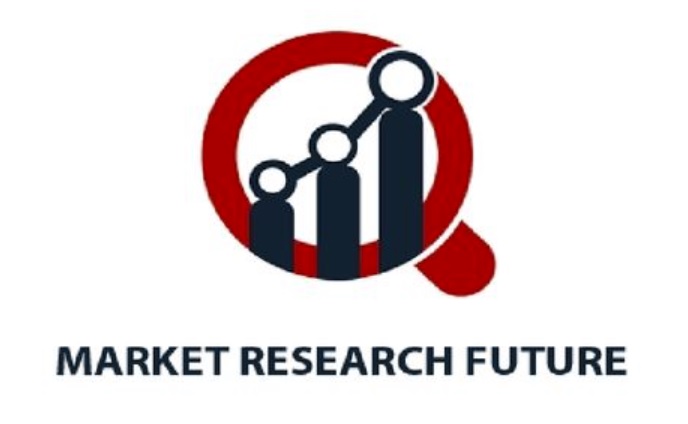Atomizing metal powder is a type of metal powder that is produced through a process known as atomization. In this process, molten metal is sprayed through a nozzle at high pressure and speed, where it breaks up into tiny droplets that solidify in mid-air to form metal powder. The global atomizing metal powder market is expected to grow at a CAGR of 6.91% from 2021 to 2028, according to a report by MRFR.
Atomizing metal powders are used in various applications, including additive manufacturing, powder metallurgy, surface coating, and chemical catalysts. The aerospace and defense industry is the largest consumer of atomizing metal powders, accounting for a significant share of the global market. Atomizing metal powders are used in the production of aerospace components, such as turbine blades, rocket nozzles, and fuel cells. They offer several advantages over traditional materials, such as metals and alloys, including improved performance, reduced weight, and better corrosion resistance.
The automotive industry is another major consumer of atomizing metal powders, particularly in the form of additive manufacturing materials. Atomizing metal powders are used to produce automotive components, such as engine parts, brake discs, and transmission gears. They offer several advantages over traditional manufacturing methods, such as casting and forging, including design flexibility, cost-effectiveness, and reduced waste. Moreover, atomizing metal powders can also be used to produce lightweight and high-strength materials, which can improve the fuel efficiency and performance of automotive components.
The healthcare industry is also a significant consumer of atomizing metal powders, particularly in the form of medical implants and prosthetics. Atomizing metal powders are used to produce biocompatible and corrosion-resistant materials, such as titanium and stainless steel. They offer several advantages over traditional materials, such as plastics and ceramics, including better biocompatibility, mechanical strength, and durability. Moreover, atomizing metal powders can also be used to produce customized implants and prosthetics, which can improve the patient’s quality of life and reduce the risk of complications.
The electronics industry is another important consumer of atomizing metal powders, particularly in the form of conductive materials and electromagnetic shielding. Atomizing metal powders are used to produce materials, such as copper and silver, which can conduct electricity and provide electromagnetic shielding for electronic components. They offer several advantages over traditional materials, such as plastics and ceramics, including better conductivity, thermal stability, and durability. Moreover, atomizing metal powders can also be used to produce high-purity metals, which can improve the performance and reliability of electronic components.
However, the atomizing metal powder market is not without its challenges. One of the major challenges facing the market is the cost of atomizing metal powders, which can be higher than traditional materials. Moreover, the production of atomizing metal powders can also be energy-intensive and generate a significant amount of waste, which can have environmental implications.
To address these challenges, many manufacturers are now focusing on developing more cost-effective and sustainable production methods. For instance, some manufacturers are now using renewable energy sources, such as solar and wind power, to power their production facilities. Others are exploring new recycling technologies, such as powder bed fusion and laser sintering, which can help reduce waste and energy consumption.
- Hoganas AB
- Sandvik AB
- Hangzhou Yitong New Material Co. Ltd
- Kobe Steel Ltd
- JFE Steel Corporation
- Kymera International
- Makin Metal Powders Ltd
- GKN Sinter Metals Engineering GmbH
- Mitsui Mining & Smelting Co. Ltd
- Laiwu Feilong Powder Metallurgy Co. Ltd
- Pompton S.p.A.
- SAFINA A.S
In conclusion, the atomizing metal powder market is a growing industry, with significant potential for growth and innovation in the future. The aerospace and defense, automotive, healthcare, and electronics industries are major consumers of atomizing metal powders, due to their unique properties and advantages over traditional materials. However, the market also faces challenges, such as cost and environmental sustainability, which require ongoing innovation and development.
About Market Research Future:
At Market Research Future (MRFR), we enable our customers to unravel the complexity of various industries through our Cooked Research Report (CRR), Half-Cooked Research Reports (HCRR), Raw Research Reports (3R), Continuous-Feed Research (CFR), and Market Research Consulting Services. MRFR team have supreme objective to provide the optimum quality market research and intelligence services to our clients. Our market research studies by Components, Application, Logistics and market players for global, regional, and country level market segments, enable our clients to see more, know more, and do more, which help to answer all their most important questions.
Contact:
Market Research Future®
99 Hudson Street,5Th Floor
New York, New York 10013
United States of America
Phone:
+1 628 258 0071(US)
+44 2035 002 764(UK)
Email: sales@marketresearchfuture.com
Website: https://www.marketresearchfuture.com

